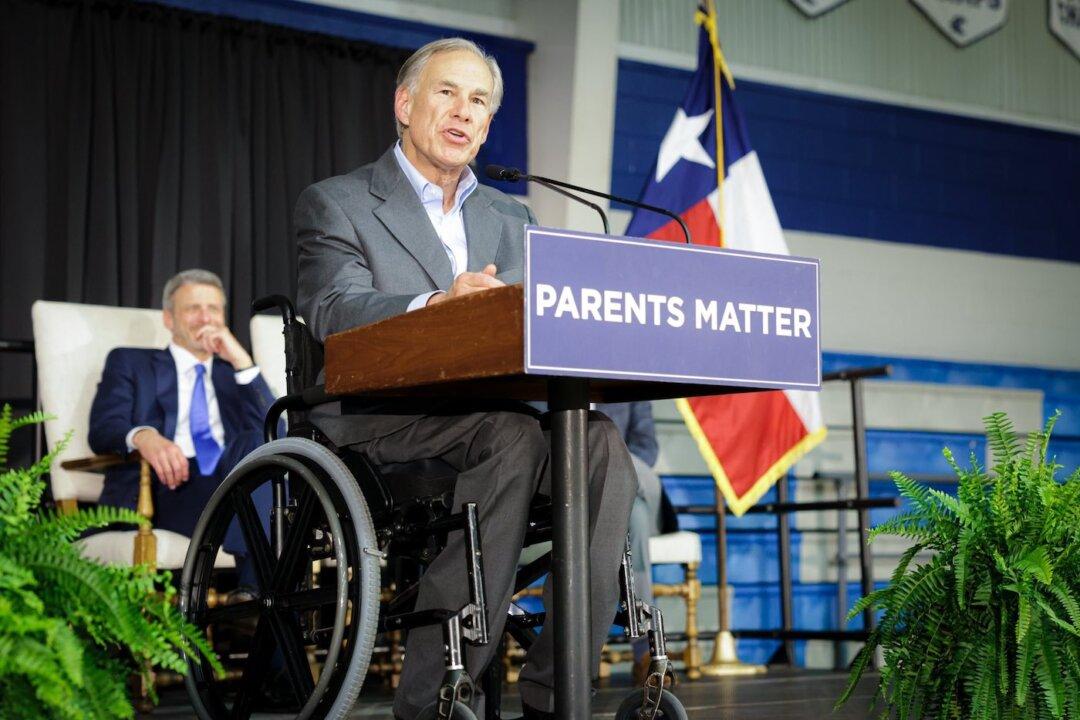Texas Gov. Greg Abbott believes parents should be in charge of their children’s education, and that’s the message he delivers to parents, educators, and community members at events across the state.
“In Texas, we believe in freedom,” Abbott said on Thursday at the Parent Empowerment Night at Grace Community School in Tyler, Texas. “When you think about it, there may be no more profound freedom that is actually necessary than the freedom of parents being empowered to make the best decisions for their child.”





